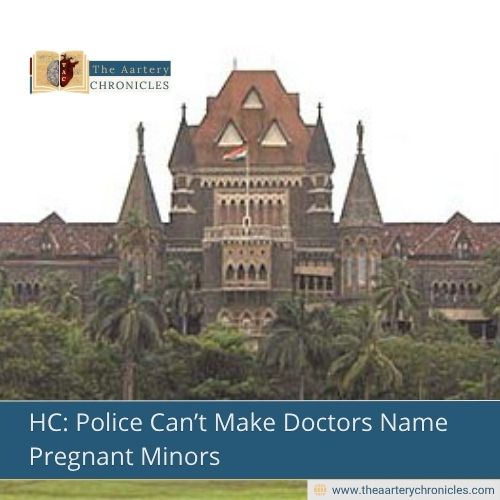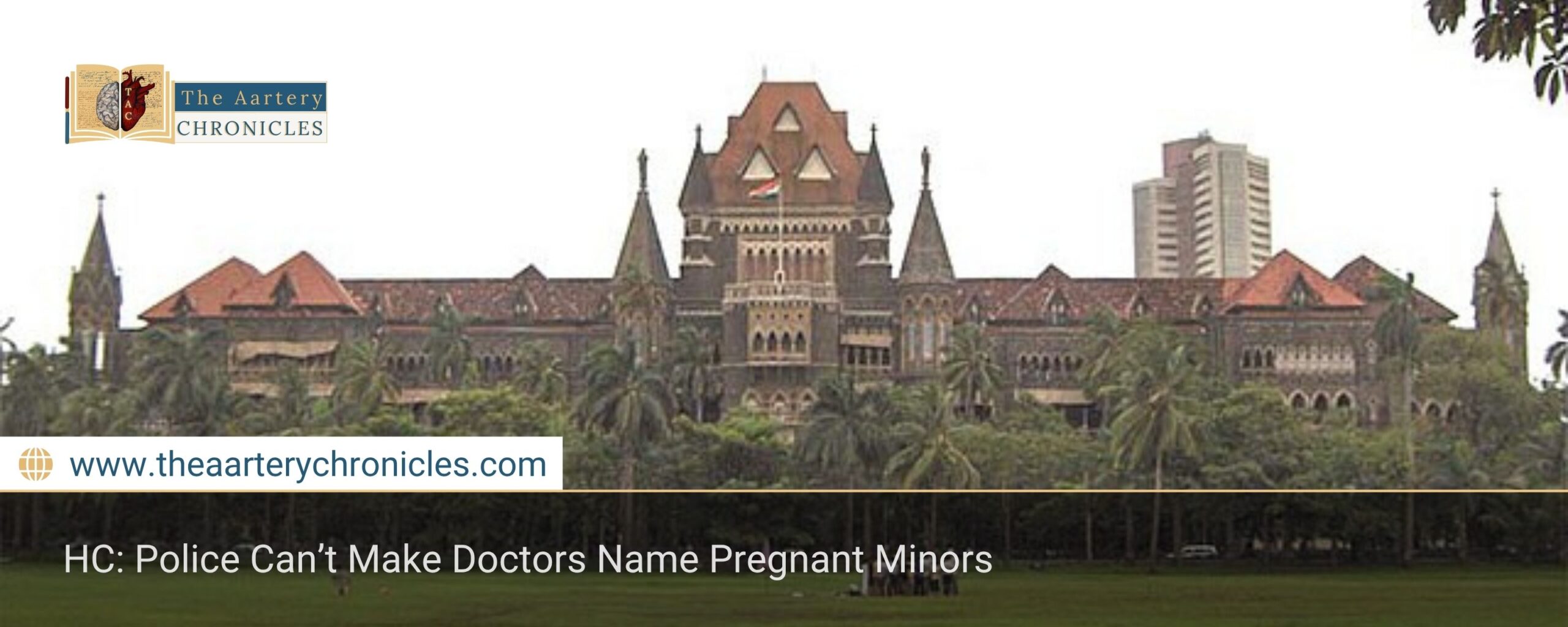

HC: Police Can’t Make Doctors Name Pregnant Minors
The Bombay High Court reaffirmed that medical professionals cannot be compelled by police to reveal the identity of minor girls seeking abortions. The court emphasised that doing so not only violates medical confidentiality but also discourages minors from seeking safe medical care.
The Case
The case was brought forward by Dr. Nikhil Datar, a Malad-based obstetrician, who was approached by the parents of a teenage girl on July 23. The girl had missed her period, and a home pregnancy test confirmed she was pregnant. The family requested a medical termination of the pregnancy, which was at 13 weeks.
Importantly, both the minor and her parents did not wish to file a complaint against the boy involved, stating through an affidavit that the relationship was consensual.
Police Involvement and Legal Dilemma
Due to the provisions of the Protection of Children from Sexual Offences (POCSO) Act, which mandates reporting of sexual activity involving minors, Dr. Datar contacted the police helpline. Soon after, police officers arrived at his clinic and demanded full personal details of the girl and her family, along with hospital records. Additionally, the Malad Police Station issued a written notice demanding these details.
Dr. Datar, believing that such pressure could deter minors from seeking safe abortions and push them towards unsafe methods, moved the Bombay High Court seeking legal protection.
High Court’s Ruling
The division bench, comprising Justice Revati Mohite-Dere and Justice Dr. Neela Gokhale, allowed Dr. Datar to proceed with the termination without disclosing the minor’s identity. The court emphasised that the Supreme Court has consistently ruled that doctors must not be forced to reveal the identity of minor girls in such situations.
The court further directed that:
- Forensic samples from the aborted fetus should be collected only if the minor and her parents consent, and stored securely by the doctor.
- These samples should be handed over to the police only if a criminal investigation is initiated later.
A Systemic Issue
The judges expressed surprise that despite repeated guidance from the Supreme Court, the Maharashtra police continued to pressure doctors for personal information in such cases. The court labelled this behaviour as “harassment of both doctors and minor patients.”
As a corrective measure, the bench ordered the Director General of Police (DGP), Maharashtra, to issue an official circular instructing all police stations in the state not to demand the identity of minors seeking medical termination of pregnancy from healthcare providers.
Implications for Medical Practitioners
This ruling strengthens the legal position of healthcare professionals, particularly gynaecologists and obstetricians, who often find themselves in difficult positions due to conflicting legal obligations. The judgment affirms that protecting patient confidentiality, especially for vulnerable minors, takes precedence unless a criminal complaint is filed.
Conclusion
The High Court’s decision not only safeguards the rights of pregnant minors but also supports ethical medical practice. Doctors are now reassured that they can provide essential reproductive healthcare to minors without breaching confidentiality, as long as there is no formal criminal complaint.
Source: Inputs from various media Sources

Priya Bairagi
Reviewed by Dr Aarti Nehra (MBBS, MMST)
I’m a pharmacist with a strong background in health sciences. I hold a BSc from Delhi University and a pharmacy degree from PDM University. I write articles and daily health news while interviewing doctors to bring you the latest insights. In my free time, you’ll find me at the gym or lost in a sci-fi novel.








